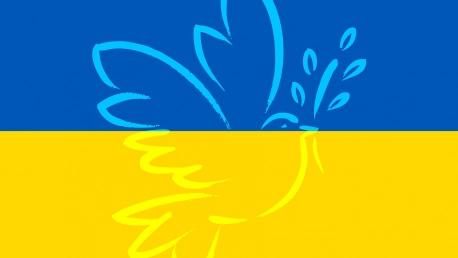Governance is never an easy job, and it can become increasingly difficult during a geopolitical crisis. This has been true even before WWI when conflicts in the Balkans reshaped the region during the Italo-Turkish War, as well as the First and Second Balkan Wars. It was also true after WWI, when the defeat of the Central Powers—Austria-Hungary, Germany, Bulgaria and the Ottoman Empire—gave rise to nationalism in Germany, the country that would later start WWII. It remains equally true today.
Much like Germany before WWII, Russia seems to have forgotten some of the core principles of good governance, as they were defined by the United Nations (UN): accountability, transparency and responsiveness. It seems ironic that Vladimir Putin’s Russia demands the “denazification” of Ukraine, while the Jewish community in the country is actually fleeing Russia’s onslaught. Indeed, it is Russia itself that seems to resemble the government of Nazi Germany today—a dictatorship run by a megalomaniac who is not afraid to use oppression and violence to control, and even eliminate, another country’s population.
However, understanding the quest for peace during the geopolitical crisis triggered by Russia’s invasion of Ukraine should start not by comparing the two countries to Nazi Germany, but by looking deep into their souls and into their cultural backgrounds.
From a Popular Ballet to an Unjust Invasion
One of the most popular ballets of all time is undoubtedly Pyotr Ilyich Tchaikovsky’s Swan Lake—a famous Russian ballet inspired by Russian and German folklore that tells the story of princess Odette. The folktale is that Odette was transformed into a swan by an evil sorcerer’s curse, only to be saved by the love of a man who has never loved before. When Odette finally meets her prince, the evil sorcerer transforms his own daughter, Odile, into the princess and the prince gets tricked into falling in love with her. The ballet, a hopeless story with a dramatic ending, is not only one of Russia’s most famous contributions to the arts, but also one with an important significance in Russian political history.
Over time, Swan Lake was aired by Russian and Soviet media as an indication of crisis for Russians everywhere—pointing to internal turmoil, and even leadership change within the country. The ballet was also aired recently by one of Russia’s last independent news outlets as part of its final broadcast. As its staff resigned as part of a “no war” protest, Swan Lake could be heard in the background, serving as a reminder that peace requires both change and courage. While the ballet is indeed linked to Russia’s political history, it may also serve as a mirror of its soul.
In the fight between good an evil, the substitution of Odette with Odile is a trick similar to Russia’s own invading army pretending to be on a “denazification” mission. The ballet’s numerous conflicting endings, ranging from happy to tragic, seem to be reflected in the current geopolitical crisis.
Alternate Endings: Is Peace Possible?
One of the most interesting aspects of Tchaikovsky’s Swan Lake is the fact that different versions of the famous ballet have very different endings, and those endings can convey anything from tragedy to happiness. Much like the ballet, the war in Ukraine can also end in peace, or continue to escalate even further. According to US Director of National Intelligence, Avril Haines, the Russian President could see a potential defeat in Ukraine as an existential threat to his regime, and this, in turn, might convince him to resort to nuclear weapons. However, Haines also points out that there are a various things he would do in the context of escalation before resorting to nuclear weapons.
Russia does not seem to be alone in thinking that the conflict will go a step further, as Ukrainian officials also announced that their country was not willing to trade land for peace. “Do not offer us a ceasefire—this is impossible without total Russian troop withdrawal. Ukraine is not interested in a new Minsk and the war renewal in a few years. Until Russia is ready to fully liberate occupied territories, our negotiating team is weapons, sanctions and money,” Mykhailo Podolyak, adviser to the Ukrainian president, said on Twitter. However, with no peace agreement on the table, Ukraine, Russia, and other countries might find themselves caught in a different, more tragic dilemma.
According to Daniel Immerwahr, associate professor of history at Northwestern University, the nuclear fears of the Cold War years have faded with time—and that is especially dangerous now. “Our nuclear consciousness is badly atrophied. We’re left with a world full of nuclear weapons, but emptying of people who understand their consequences,” wrote Immerwahr. Considering Russia’s recent nuclear threats, his words could be seen as a prophetic warning and a call for a more peaceful ending.









